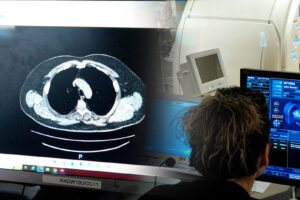UMD Innovators Honored for Transformative Inventions, Entrepreneurial Endeavors
Published on the UMCP Division of Research website, 4/15/19
The University of Maryland announced its Invention of the Year award winners and honored innovators, entrepreneurs, and campus partners at Innovate Maryland, an annual event hosted on April 11, 2019, at The Hotel at the University of Maryland.
This year’s event began with a Startup Showcase and Corprenect pitch competition and was capped off by the first-ever Innovate Maryland After Party, featuring live music, virtual reality demonstrations, food trucks, and tours of Startup UMD, the Capital One Tech Incubator, and We Work.
“This event is a celebration of all the Fearless Ideas being activated by UMD students and faculty to create solutions that can transform lives,” said UMD Chief Innovation Officer Julie Lenzer. “We also gather to recognize recent accomplishments across our innovation ecosystem, the connective tissue that makes all this possible.”
Since 1987, the university has honored exceptional inventions that have the potential to make a transformative impact on science, society, and the free market. At the 32nd annual celebration, Vice President for Research Laurie E. Locascio announced that the Office of Technology Commercialization will retire its name and now be known as UM Ventures – College Park.
“This name change is reflective of the university’s expanded efforts to create a seamless environment for the creative output of our research enterprise,” said Locascio.
UM Ventures – College Park surpassed 100 startups in 2018, helped launch 5 new startup companies, issued 15 new licenses, executed 98 new licensing agreements, and processed 181 new invention disclosures. The team also welcomed a new director in 2018, Ken Porter, and added new services to support faculty startups.
The Invention of the Year award nominees are selected from prior year invention disclosures in three categories: physical sciences, life sciences, and information sciences. A panel of judges selected one invention from each category to win the 2018 Invention of the Year Award and one overall winner.
“Cryogenic Ion Trapping and Storage System for Quantum Information”
Winner of the Overall Invention of the Year Award
Scientists around the globe are engaged in a race to create the world’s first scalable quantum computer, an invention that could revolutionize computing technology as we currently know it. Researchers at UMD have invented a new atom-trapping system to take the next step toward developing a scalable quantum computer. The system utilizes cryogenic technology, which operates at very low temperatures, to trap atoms that are used as building blocks to store and process quantum information for longer times. This apparatus may become an ideal test-bed to investigate both quantum algorithms and simulation of synthetic quantum matter with a number of qubits impossible to simulate on a classical computer.
The invention team includes researchers from the College of Computer, Mathematical, and Natural Sciences:
- Christopher Monroe, Distinguished University Professor & Bice Sechi-Zorn Professor, Department of Physics and Joint Quantum Institute (JQI)
- Guido Pagano, Post-Doctoral Researcher, Department of Physics and JQI
- Paul Hess, Post-Doctoral Researcher, JQI
- Harvey Kaplan, Ph.D. Student, Department of Physics and JQI
- Wen Lin Tan, Ph.D. Student, Department of Physics and JQI
- Philip Richerme, Former Post-Doctoral Fellow, Department of Physics
“Augmented Reality Enabled Catheter”
Invention of the Year: Information Sciences Category
Working with surgeons at the R Adams Cowley Shock Trauma Center, computing visualization experts at the University of Maryland have developed an augmented reality (AR) system that provides an accurate virtual representation of a catheter’s tip inside the human skull during external ventricular drainage (EVD), a lifesaving neurological procedure used to relieve the build-up of cerebrospinal fluid in the brain. Wearing an AR headset, a surgeon is able to virtually “see” both the location of the catheter’s tip and also see important patient data available from a computer tomography (CT) scan. This invention will allow a surgeon to complete this lifesaving medical procedure with more knowledge and accuracy.
The invention team includes:
- Amitabh Varshney, Professor and Dean, College of Computer, Mathematical, and Natural Sciences
- Sarah Murthi, M.D., Associate Professor of Surgery, University of Maryland School of Medicine; Trauma Surgeon, R Adams Cowley Shock Trauma Center
- Gary Schwartzbauer, M.D., Assistant Professor of Neurosurgery, University of Maryland School of Medicine; Neurosurgeon, R Adams Cowley Shock Trauma Center
- Xuetong Sun, Doctoral Student, Department of Computer Science
“Novel Method of Internal Organ Generation For Therapy and Research in Humans and Animals”
Invention of the Year: Life Sciences Category
Every 10 minutes a patient is added to the organ transplantation list, and on average 20 people die each day in the U.S. alone due to the lack of available life-saving organs. To address this critical gap in availability of organs for transplantation, resident genome editing experts at UMD have invented a technology that allows generation of “transplantation-ready” and immune compatible human cells and organs in pigs. The invention includes genome editing of pig embryos and complementing them with patient-specific stem cells to generate on-demand human organs for transplantation. This technology will likely revolutionize life-saving organ transplants and also provide a more relevant model to study human disease and treatment protocols.
The invention team includes researchers from the College of Agriculture and Natural Resources:
- Chi-Hun Park, Faculty Assistant, Department of Animal and Avian Sciences
- Bhanu Telugu, Associate Professor, Department of Animal and Avian Sciences
“Strong and Tough Graphite-Paper Composites”
Invention of the Year: Physical Sciences Category
Scientists are trying to prevent the further collection of plastic waste in landfills by inventing new biodegradable materials that are cheap to manufacture and can eventually replace plastic. University of Maryland researchers have developed a potential replacement for petroleum-based plastics and metal-based structural materials: a high-performance hybrid material of graphite and cellulose that is cheap to manufacture and fully degradable. The material is made by dispersing fine graphite flakes into nanofibrillated cellulose (NFC) dissolved in room temperature water. The resulting stable and homogeneous graphite-NFC slurry is then printed into large sheets that, once cast dried, are not only stronger than most steel, but also significantly lighter.
The invention team includes researchers from the A. James Clark School of Engineering:
- Liangbing Hu, Assistant Professor, Department of Materials Science and Engineering and Maryland Energy Innovation Institute
- Yubing Zhou, Professor, Department of Materials Science and Engineering and Maryland Nanocenter
- Chaoji Chen, Professor, Department of Materials Science and Engineering and Maryland Nanocenter
- Teng Li, Associate Professor, Department of Mechanical Engineering and Maryland Energy Innovation Institute
- Robert Foster, Executive Vice President of Development, Trinity Rail Group
After the Invention of the Year awards presentation, Peter Sandborn, director of the Maryland Technology Enterprise Institute, and Alla McCoy, director of startup support for UM Ventures – College Park, presented the UMD Startup of the Year award to IonQ, an early-stage quantum computing company co-founded by Christopher Monroe, Distinguished University Professor and Bice Sechi-Zorn Professor of Physics at the University of Maryland, andJungsang Kim, professor in the Department of Electrical and Computer Engineering and the Department of Computer Science at Duke University.
Dean Chang, Associate Vice President for Innovation and Entrepreneurship closed the ceremony with the Celebration of Campus Innovators, honoring students from a variety of organizations across campus dedicated to fearlessly pursuing innovative solutions to tough problems locally and across the world.
The UM Ventures – College Park is grateful for the support of its 2019 Innovate Maryland sponsors:
Gold Sponsors
- Carter, DeLuca, Farrell & Schmidt, LLP
- Terrapin Development Company
- WeWork
Red Sponsors
- AuerbachSchrot
- Ballard Sparh LLP
- Berenato & White, LLP
- Chesapeake Realty Partners
- Rosenberg, Klein, and Lee
- Shapiro, Gabor and Rosenberger PLLC
- War Horse Cities
- Baker Donelson
- COPT
- HDC IP Law, LLC
- Hodgson Russ LLP
- Leveque IP Law, P.C.
- Quarles & Brady LLP
- Sterne, Kessler, Goldstein & Fox
- William Beaumont Juneau & Mitchell PLLC
- The Maryland Department of Commerce
And special thanks to:
- Pepsi
- Squire Patton Boggs
- Gordon Feinblatt LLC
- Capital One
View photos from Innovate Maryland 2019.
About UM Ventures – College Park
UM Ventures – College Park, formerly known as the University of Maryland Office of Technology Commercialization, is the gateway to the university’s technology transfer and commercialization endeavors. UM Ventures – College Park develops and manages a high-quality portfolio of diverse technologies, ensures intellectual property rights through patents or copyrights, negotiates and executes licensing agreements and, when feasible, assists in the formation of start-up businesses that utilize university technology to benefit the state and local economy.
April 15, 2019



